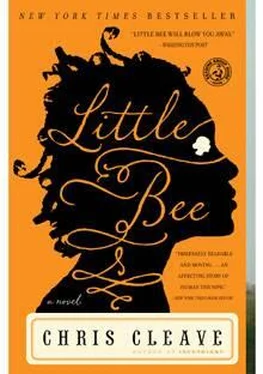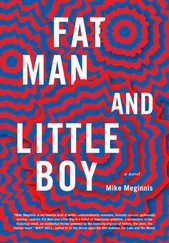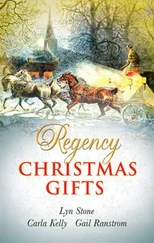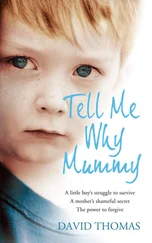I sat very still at my kitchen table. My mother and my sister had come back with us from the church and they orbited me in a blur of fussing and tidying, so that if a photograph had been taken of us all with a very long exposure it would have shown only me, in sharp focus, surrounded by a ghostly halo that took its azure color from my sister’s cardigan and its eccentricity from my mother’s tendency to close in on me at one end of her orbit, and ask if I was all right. I hardly heard her, I think. They carried on around me for an hour, respectful of my silence, washing the teacups without unnecessary clink, alphabetizing condolence cards whilst minimizing rustle, until I begged them, if they loved me, to go home.
After they left, with tender, drawn-out hugs that made me regret banishing them, I sat back down at the kitchen table and watched Little Bee playing in the garden with Batman. I suppose it had been reckless of us to abandon our home and spend the whole morning at a funeral. In our absence some baddies of the worst stripe had occupied the laurel bush, and now had to be flushed out with water pistols and bamboo canes. It seemed to be dangerous and painstaking work. First Little Bee would creep up to the laurel on her hands and knees, with the hem of her oversize Hawaiian shirt dragging in the dirt. When she spotted a lurking baddy she would jab at him with a yell, causing him to break out into the open. There my son was ready with the water pistol to deliver the coup de grâce. I marveled at how quickly they had become a team. I wasn’t sure I wanted them to be. But what was I to do? To stride out into the garden and say, Little Bee, could you please stop making friends with my son? My son would loudly demand an explanation and it would be no use telling him that Little Bee wasn’t on our side. Not now that she and he had killed so many of those baddies together.
No, it wasn’t going to work anymore, denying her, or denying what had happened in Africa. A memory can be banished, even indefinitely, deported from consciousness by the relentless everydayness of running a successful magazine, mothering a son, and burying a husband. A human being, though, is a different thing entirely. The existence of a Nigerian girl, alive and standing in one’s own garden-governments may deny such things, or brush them off as statistical anomalies, but human beings cannot.
I sat at the kitchen table and stared through suddenly wet eyes at the stump where my finger used to be. I realized that it was finally time to face up to what had happened on the beach.
It should never have happened, of course, in the ordinary run of things. There are countries of the world, and regions of one’s own mind, where it is unwise to travel. I have always thought so, and I have always struck myself as a sensible woman. Independent of mind, but not recklessly so. I would love to have the same arm’s-length relationship with foreign places that other sensible women seem to have.
Clever me, I went on holiday somewhere different. That season in Nigeria there was an oil war. Andrew and I hadn’t known. The struggle was brief, confused, and scarcely reported. The British and Nigerian governments both deny to this day that it even took place. God knows, they aren’t the only ones who tried denial.
I still wonder why it came into my head to accept a holiday in Nigeria. I wish I could claim it was the only tourist-board freebie that arrived at the magazine that spring, but we had boxes full of them-crates of unopened envelopes hemorrhaging sunscreen from ruptured sample sachets. I could have chosen Tuscany, or Belize. The former Soviet states were big that season. But no. The cussed streak in me-the one that made me launch Nixie instead of joining some tamer glossy; the one that made me start an affair with Lawrence instead of mending my fences with Andrew-that enduring outward-bound streak gave me an adolescent thrill when a package landed on my desk emblazoned with the question FOR YOUR HOLIDAY THIS YEAR, WHY NOT TRY NIGERIA? Some wag on my editorial staff had scrawled under this, in black chunky marker, the obvious response. But I was intrigued, and I opened the package. Out fell two open-ended airline tickets and a hotel reservation. It was as simple as turning up at the airport with a bikini.
Andrew came with me, against his better judgment. The Foreign Office were advising against travel to some parts of Nigeria, but we didn’t think that included ours. He took some convincing, but I reminded him that we’d taken our honeymoon in Cuba, and parts of that place were horrific. Andrew gave in. Looking back on it now, I suppose he thought he had no choice if he wanted to keep me.
The tourist board that sent the freebies noted that Ibeno Beach was an “adventurous destination.” Actually, at the time we went, it was a cataclysm with borders. To the north there was a malarial jungle and to the west a wide brown river delta. The river was iridescent with oil. It was, I now know, bloated with the corpses of oil workers. To the south was the Atlantic Ocean. On that southern edge I met a girl who was not my magazine’s target reader. Little Bee had fled southeast on bleeding feet from what had once been her village and was shortly to become an oil field. She fled from the men who would kill her because they were paid to, and the children who would kill her because they were told to. I sat at my kitchen table and I imagined her fleeing through the fields and the jungle, as fast as she could, until she arrived at the beach where Andrew and I were being unconventional. That beach was as far as she got.
My missing finger itched, just thinking about it.
When they came in from the garden, I sent Batman to play in his bat cave and I showed Little Bee where the shower was. I found some clothes for her. Later, when Batman was in bed, I made two G &Ts. Little Bee sat and held hers, rattling the ice cubes. I drank mine down like medicine.
“All right,” I said. “I’m ready. I’m ready for you to tell me what happened.”
“You want to know how I survived?”
“Start from the beginning, will you? Tell me how it was when you first reached the sea.”
So she told me how she hid, on the day she arrived at the beach. She had been running for six days, traveling through the fields by night and hiding in jungles and swamps when daybreak came. I turned off the radio in the kitchen, and I sat very quietly while she told me how she holed up in a salient of jungle that grew right down to the sand. She lay there all through the hottest part of the day, watching the waves. She told me she hadn’t seen the sea before, and she didn’t quite believe in it.
In the late afternoon Little Bee’s sister, Nkiruka, came down out of the jungle and found her hiding place. She sat down next to her. They hugged for a long time. They were happy that Nkiruka had managed to follow Little Bee’s trail, but they were scared because it meant that others could do it too. Nkiruka looked into her sister’s eyes and said that they must make up new names for themselves. It was not safe to use their true names, which spoke so loudly of their tribe and of their region. Nkiruka said her name was “Kindness” now. Her younger sister wanted to reply to Kindness, but she could not think of a name for herself.
The two sisters waited. The shadows were deepening. A pair of hornbills came to crack seeds in the trees above their heads. And then-sitting at my kitchen table she said she remembered this so clearly that she could almost reach out and stroke the fuzzy black back of the thing-a bee blew in on the sea breeze and it landed between the two sisters. The bee was small and it touched down on a pale flower-frangipani, she told me, although she said she wasn’t sure about the European name-and then the bee flew off again, without any fuss. She hadn’t noticed the flower before the bee came, but now she saw that the flower was beautiful. She turned to Kindness.
Читать дальше











